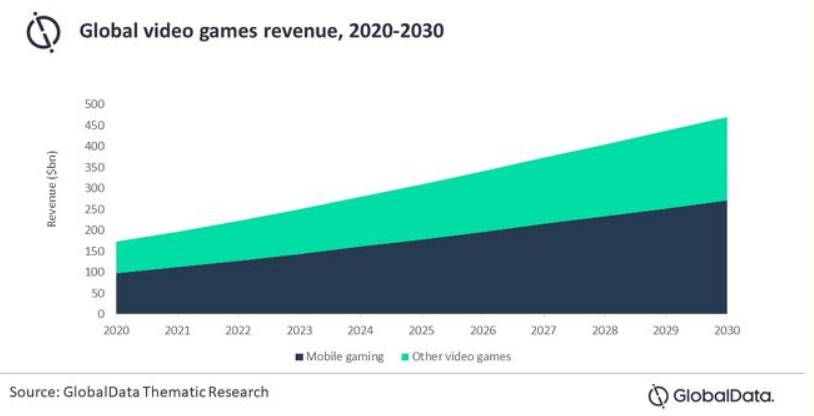

Arpana
Why Should Your Child Learn Game Development?
Technology is future-proof, and Game Development is one arm of the technology. So, the choice to learn game development could translate into a brighter future because it helps to gain technical knowledge and growth. It does not just help in enhancing your programming skills such as C++, C#, HTML5, and JavaScript, but also opens up entrepreneurial opportunities, boosts problem-solving and strategic-thinking skills.
You would be surprised to know game developers are the king of the evolving gig economy. They are their boss, work at their own pace, and command the highest compensation for their creativity. If you look at it from the personality development angle, pursuing game development enhances hand-eye coordination, and it is also beneficial for children with attention disorders.
Letting your child learn game development is something that parents should consider as it is no longer just about being passionate about games but it could also open up several job opportunities in the future.
Also, a flourishing industry can promise a thriving career, and the Game Development industry is growing in leaps and bounds if the data is anything to go by. The global gaming market was valued at USD 162.32 billion in 2020 and is expected to reach a value of USD 295.63 billion by 2026, registering a CAGR of 10.5% over the forecast period (2021 – 2026), says a report by the market intelligence and advisory firm Mordor Intelligence.
 Source: Gamesindustry.biz
Gaming, one of the many fruitful branches of the technological revolution, is multi-dimensional when it comes to variations in job opportunities. From Bachelors in Engineering/Bachelors in Technology degree holders in computer engineering to creative writers, artists, and designers, there is enough space for everyone to showcase their talent and cultivate progress and growth.
The industry is currently reigning the employment front and remains a powerful economic engine and a dynamic job creator says statistics by the American Gaming Association.
The statistics from the American Gaming Association report further reveal that gaming contributes $261 billion to the US economy and generates $40.8 billion in tax revenues to federal, state, and local governments. The gaming industry directly employs 727,000 people in the U.S., with $33.3 billion of wages, salaries, tips, benefits, and other labor income.
Source: Gamesindustry.biz
Gaming, one of the many fruitful branches of the technological revolution, is multi-dimensional when it comes to variations in job opportunities. From Bachelors in Engineering/Bachelors in Technology degree holders in computer engineering to creative writers, artists, and designers, there is enough space for everyone to showcase their talent and cultivate progress and growth.
The industry is currently reigning the employment front and remains a powerful economic engine and a dynamic job creator says statistics by the American Gaming Association.
The statistics from the American Gaming Association report further reveal that gaming contributes $261 billion to the US economy and generates $40.8 billion in tax revenues to federal, state, and local governments. The gaming industry directly employs 727,000 people in the U.S., with $33.3 billion of wages, salaries, tips, benefits, and other labor income.
 Source: Grand View Research
The incentives and benefits of working in this industry are way higher than our imagination. An article on the Game Designing website quoted Glassdoor.com, the worldwide leader on insights about jobs and companies, statistics. According to the statistics, the median salary for game developers is about $68,000 in the United States. The minimum is around $37,000 and the maximum is around $119,000.
These statistics confirm that a career in gaming could offer exciting opportunities for the young ones who are planning to hop on the technological bandwagon to shape their future.
Source: Grand View Research
The incentives and benefits of working in this industry are way higher than our imagination. An article on the Game Designing website quoted Glassdoor.com, the worldwide leader on insights about jobs and companies, statistics. According to the statistics, the median salary for game developers is about $68,000 in the United States. The minimum is around $37,000 and the maximum is around $119,000.
These statistics confirm that a career in gaming could offer exciting opportunities for the young ones who are planning to hop on the technological bandwagon to shape their future.
 It’s only going to get bigger, thanks to advances in mobile gaming and virtual reality (VR) technology.
By 2026, the worldwide gaming market is predicted to be worth about USD 314.40 billion, with three billion gamers expected by the end of 2023. As the gaming industry develops more diversified and competitive, organizations’ data and analytical capabilities will become increasingly important in achieving top-tier results.
It’s only going to get bigger, thanks to advances in mobile gaming and virtual reality (VR) technology.
By 2026, the worldwide gaming market is predicted to be worth about USD 314.40 billion, with three billion gamers expected by the end of 2023. As the gaming industry develops more diversified and competitive, organizations’ data and analytical capabilities will become increasingly important in achieving top-tier results.
 Source: Gamesindustry.biz
Gaming, one of the many fruitful branches of the technological revolution, is multi-dimensional when it comes to variations in job opportunities. From Bachelors in Engineering/Bachelors in Technology degree holders in computer engineering to creative writers, artists, and designers, there is enough space for everyone to showcase their talent and cultivate progress and growth.
The industry is currently reigning the employment front and remains a powerful economic engine and a dynamic job creator says statistics by the American Gaming Association.
The statistics from the American Gaming Association report further reveal that gaming contributes $261 billion to the US economy and generates $40.8 billion in tax revenues to federal, state, and local governments. The gaming industry directly employs 727,000 people in the U.S., with $33.3 billion of wages, salaries, tips, benefits, and other labor income.
Source: Gamesindustry.biz
Gaming, one of the many fruitful branches of the technological revolution, is multi-dimensional when it comes to variations in job opportunities. From Bachelors in Engineering/Bachelors in Technology degree holders in computer engineering to creative writers, artists, and designers, there is enough space for everyone to showcase their talent and cultivate progress and growth.
The industry is currently reigning the employment front and remains a powerful economic engine and a dynamic job creator says statistics by the American Gaming Association.
The statistics from the American Gaming Association report further reveal that gaming contributes $261 billion to the US economy and generates $40.8 billion in tax revenues to federal, state, and local governments. The gaming industry directly employs 727,000 people in the U.S., with $33.3 billion of wages, salaries, tips, benefits, and other labor income.
 Source: Grand View Research
The incentives and benefits of working in this industry are way higher than our imagination. An article on the Game Designing website quoted Glassdoor.com, the worldwide leader on insights about jobs and companies, statistics. According to the statistics, the median salary for game developers is about $68,000 in the United States. The minimum is around $37,000 and the maximum is around $119,000.
These statistics confirm that a career in gaming could offer exciting opportunities for the young ones who are planning to hop on the technological bandwagon to shape their future.
Source: Grand View Research
The incentives and benefits of working in this industry are way higher than our imagination. An article on the Game Designing website quoted Glassdoor.com, the worldwide leader on insights about jobs and companies, statistics. According to the statistics, the median salary for game developers is about $68,000 in the United States. The minimum is around $37,000 and the maximum is around $119,000.
These statistics confirm that a career in gaming could offer exciting opportunities for the young ones who are planning to hop on the technological bandwagon to shape their future.
The Bright Future of Game Development
The total amount spent on video games in 2016 was $92 billion USD. That’s more money than was spent on movies and music combined, to put it in context. The video game industry is currently five times the size of the music industry and one-and-a-half times the size of the film industry. It’s only going to get bigger, thanks to advances in mobile gaming and virtual reality (VR) technology.
By 2026, the worldwide gaming market is predicted to be worth about USD 314.40 billion, with three billion gamers expected by the end of 2023. As the gaming industry develops more diversified and competitive, organizations’ data and analytical capabilities will become increasingly important in achieving top-tier results.
It’s only going to get bigger, thanks to advances in mobile gaming and virtual reality (VR) technology.
By 2026, the worldwide gaming market is predicted to be worth about USD 314.40 billion, with three billion gamers expected by the end of 2023. As the gaming industry develops more diversified and competitive, organizations’ data and analytical capabilities will become increasingly important in achieving top-tier results.
















